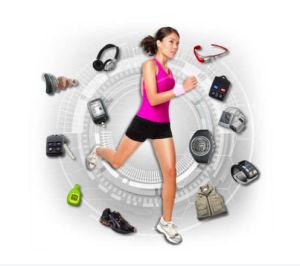Gestational diabetes (GDM) poses a growing health risk to both pregnant women and their offspring. While telehealth interventions for GDM management have proven effective, they have traditionally relied on healthcare professionals for guidance and feedback. Our aim was to explore self-tracking in GDM with wearable sensors from self-discovery (i.e., learning associations between glucose levels and lifestyle) and user experience perspectives. We conducted a mixed-methods study with women diagnosed with GDM, utilizing continuous glucose monitor and three types of physical activity sensors (activity bracelet, hip-worn sensor, and electrocardiography sensor) for a week. Data from the sensors was collected, and participants were later interviewed about their experience with the wearable sensors. Additionally, we gathered maternal nutrition data through a 3-day food diary and recorded self-reported physical activity using a logbook. We discovered that continuous glucose monitors were especially valuable for self-discovery, particularly when establishing links between glucose levels and nutritional intake. Challenges associated with using wearable sensors data for self-discovery in GDM included: (1) Separation of glucose and physical activity data in different applications, (2) Missing key trackable features, such as light physical activity and non-walking activities, (3) Discrepancies in data, and (4) Differences in perceived versus measured physical activity. The placement of sensors on the body emerged as a critical factor influencing data quality and personal preferences. To conclude, an app where glucose, nutrition, and physical activity data are combined is needed to support self-discovery. This app should enable tracking of essential features for women with GDM, including light physical activity, with data originating from a single sensor to ensure consistency and eliminate redundancy.
翻译:暂无翻译





